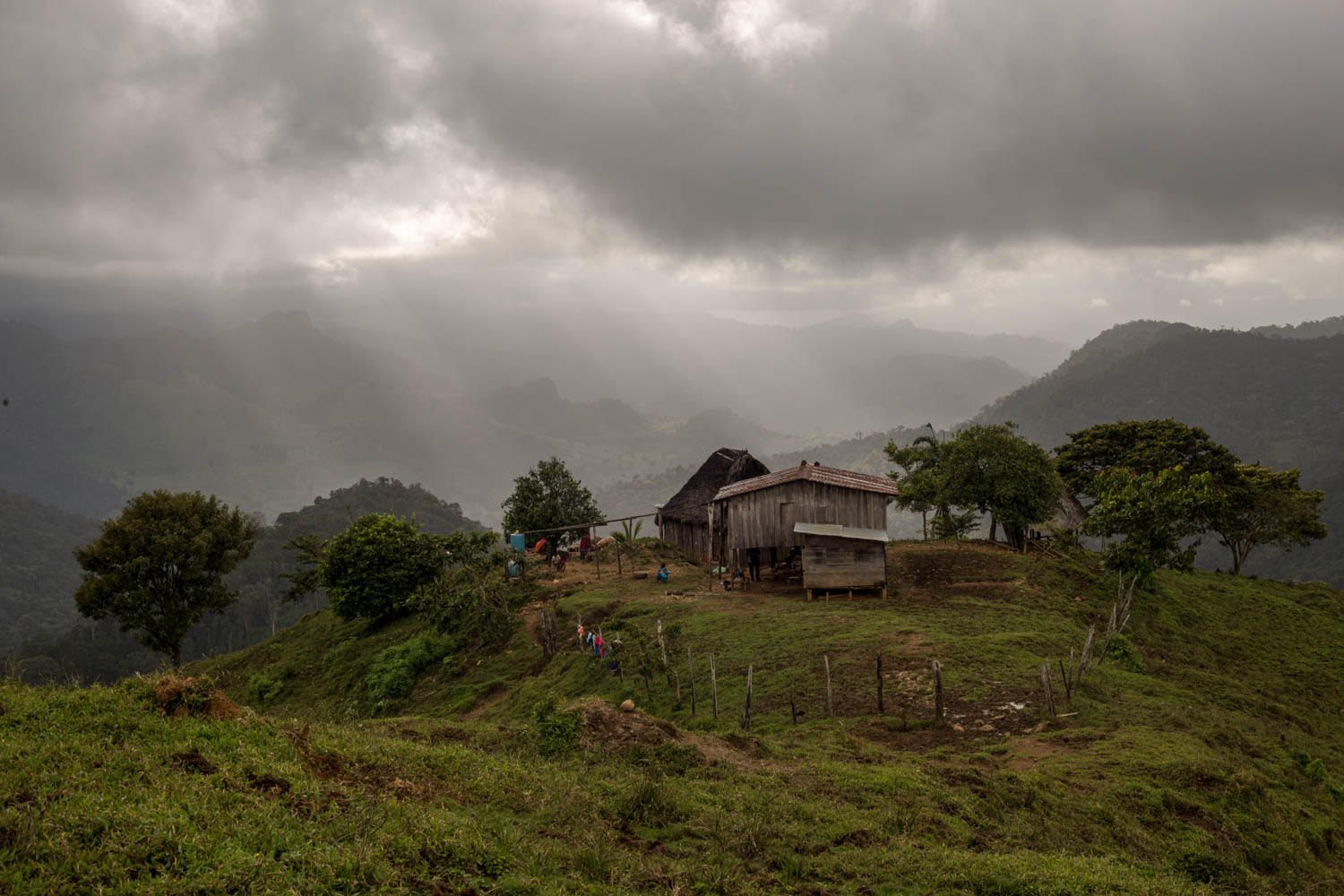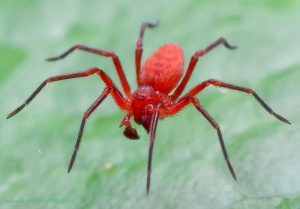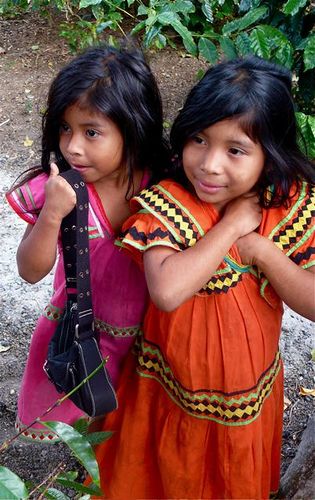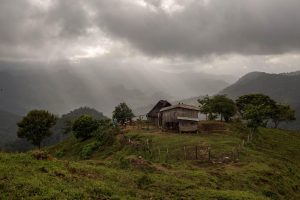#Culture
Day of the Dogs, Part 13: Never Be Your King
Omar met Celio Natá’s flat gaze. The man was the Black Knife: the Ngäbe-Buglé’s secret weapon. A one-man strike force.
Published

See the Story Index for Wael Abdelgawad’s other stories.
This is chapter 6 in a multi-chapter novella. Chapters: Chapter 1 | Chapter 2 | Chapter 3 | Chapter 4 | Chapter 5 | Chapter 6 | Chapter 7 | Chapter 8 | Chapter 9 | Chapter 10 | Chapter 11 | Chapter 12
“Who names their kid after a fruit?” – Omar
Good Dog
Keep supporting MuslimMatters for the sake of Allah
Alhamdulillah, we're at over 850 supporters. Help us get to 900 supporters this month. All it takes is a small gift from a reader like you to keep us going, for just $2 / month.
The Prophet (SAW) has taught us the best of deeds are those that done consistently, even if they are small. Click here to support MuslimMatters with a monthly donation of $2 per month. Set it and collect blessings from Allah (swt) for the khayr you're supporting without thinking about it.

A car blared its horn and rushed by in the darkness, its headlights blazing a path in the rain. He had not even seen it coming. Berlina had saved his life.
“Good dog.” He rubbed her neck with a shaking hand. Looking both ways now, he jogged across the street, his feet slapping the asphalt. From somewhere far off he heard a drawn-out cry that might have been the harpy eagle again, or a car skidding on the wet streets. He was filled with a directionless panic. He knew it was stupid. A harpy eagle was a bird, that was all. Nevertheless, his stomach felt like he’d swallowed a live eel.
He pressed the buzzer on the intercom at his mother’s gate, and a moment later the speaker crackled as Masood, his mother’s husband, said, “Who is it?” His voice was – as always – as mild as a pigeon’s coo.
“It’s me, Omar.”
The gate swung open. Omar hurried up the tiled white walkway, which rose in broad steps. Unlike his own lush garden, his mother’s yard had an open design consisting of mossy groundcover, boulders, and several strategically placed security cameras. It was a space to pass through rather than spend time in, and was arranged to make sure the cameras had an unobstructed view. He couldn’t fault her for the emphasis on security. Criminals had broken into and looted the house three years ago. Luckily his mom had slept at the factory that night, in an upstairs bedroom that she used when she worked late.
The exterior of the home looked like three massive, rectangular white blocks pushed together, the sheer surface broken only by vertical, heavily tinted windows. It was a weird play on traditional Panamanian homes, which tended to be made of brick, with small windows to minimize the sun’s heat. From the outside, the house seemed to say, proceed with caution.
Just like his mother, who had never been one to share her feelings about anything. She had not wept at his father’s funeral, though he knew she had loved Papá more than anything in this world. She had not wept when Omar lay in a hospital bed, ravaged by eighty seven dog bites. The only time he’d ever seen her panicked was when the harpy eagle had perched in the tree outside their home, all those years ago. What had she thought the eagle’s visit could mean? What could have been worse than all that had already happened? Though he knew the answer: she feared the eagle’s visit was a portent of my own death.
By the time he reached the front door Masood was there, dressed in his usual evening wear: leather Arabic slippers, cargo shorts and a polo shirt. The smell of fried rice and beef wafted out of the doorway.
A short, portly and balding Panamanian of Syrian descent, Masood had kind eyes, a full mouth and a chin as round as a ping pong ball. He was a perpetually mild-mannered man who was completely unlike Papá. You’d never find him practicing karate or stopping robbers on a bus. But you wouldn’t find him shouting, drinking or hitting like Nemesio either. He was neither brave nor cowardly, and that was fine. He was simply the man Mamá needed and relied on.
“How is Mamá?” Omar blurted.
Looking Omar up and down, Masood frowned. From Masood, this was an expression of great alarm. “What happened to you? Come. Ximena was just going to call you.”
Omar blinked, so unused was he to hearing anyone use his mother’s given name. Everyone else in the universe, from Puro Panameño employees to government ministers, called her Señora Bayano.
“Why? How is she?” Without waiting for an answer, Omar strode into the house with Berlina at his heel. Like the outside, the interior was wide open. White tiled floors, a high flat ceiling, a collection of white furniture here that represented a living room, a mahogany table and chairs over there that defined the kitchen.
Krägä Bianga
He found an unexpected scene. Mamá – looking perfectly healthy – sat at the kitchen table, wearing a blue nagua dress with yellow triangular patterns along the edge – the triangles were called dientes or teeth and were ubiquitous in Ngäbe design – and a red hijab. At the table with her was a group of four Ngäbe-Buglé elders and one youth – two men and two women. The table was littered with the remains of a Chinese takeout dinner.
Omar recognized his maternal uncle Celio Natá, a man of about seventy years with hard black eyes, white hair, a face as wide as the head of a shovel, and a scar that ran from his cheek to the corner of his chin. He was dressed all in black: black jeans, a short-sleeved dress shirt, and an antiquatedly wide black tie. His feet were bare, as all the visitors had left their shoes at the door.
Though officially he was governor of the Ngäbe-Buglé comarca, unofficially Celio was no less than king of the Ngäbe-Buglé people, whose lands ran along the highlands of Central America from Panama all the way to Nicaragua.
Seated beside him was Anibel Guerra, the krägä bianga. She was the same medicine woman who had sung over him after the dog attack. He’d seen her a few times since then, the last a few years ago when Mamá had malaria. She was very old now, her face a mass of wrinkles. But her hair was still pure black, parted in the middle and hanging to her waist.
The other three he did not know. A dignified, straight-backed woman in her thirties or so, a fortyish man with broad shoulders, and a teenage girl in a yellow nagua.
Normally he would not be surprised to see these people here. Though Mamá had once been excommunicated from the tribe, that had long since been rescinded. She was, after all, one of the wealthiest of her people, and had been a benefactor to the tribe over the years. It was not unusual for the elders to come to ask a favor or consult about tribal matters. A few of the tribespeople had even converted to Islam, as a way of honoring her. But why was the krägä bianga here? Someone must be sick.
“What’s wrong, Mamá?” he asked. “I saw-” He stopped himself, not wanting to say what he had seen. Who knows what these Ngäbes would make of it.
His mother took in his grubby appearance, including the wound on his shoulder, which had begun bleeding again. Her eyes widened. “You are hurt!”
The next several moments were a blur. Omar was pushed into a seat at the kitchen table with the krägä bianga standing over him. The tiny woman stripped off Omar’s wet shirt, then gave the teenage girl commands in Ngäbebere, of which Omar understood not a word.
The girl opened a leather satchel and took out small earthenware pots sealed with cloth and rubber bands. From one pot the krägä bianga scooped a vile smelling green paste that she smeared on Omar’s wound. He winced, expecting it to sting, but the effect was soothing. On top of that she layered an ashy brown substance, then covered it with a regular sterile bandage secured with medical tape.
While all this was happening, Masood towel-dried Berlina and began feeding her bits of leftover Mongolian beef while Omar was forced to explain what had happened. His mother’s eyes narrowed in anger, but Omar could not tell who she was angry at, or what – if anything – she meant to do.
Finally the krägä bianga crushed a handful of agave leaves into a pot and lit them on fire. As the acrid smoke filled the room, making Omar’s eyes water, the medicine woman began to sing. Omar gritted his teeth. He’d never had patience for these rituals, but he’d mellowed over the years, and had learned to tolerate the Ngäbe ways. As Señora Anibel sang, the other Ngäbes rocked forward and backward in their seats.
When it was over, Masood brought him a pink polo shirt that fit like a circus tent. Then, seeing as how his mother was fine, and he didn’t need to be involved in this pow-wow, he rose to leave.
The Black Knife
“Stop,” his mother said. “Don Celio wants to talk to you.”
Omar sat warily. What could Celio want? The man was a notorious figure. Back in the 1970’s he’d led the Ngäbe-Buglé in the fight against natural resource exploitation on their ancestral lands. When the government wanted to build a hydroelectric dam that would have flooded a dozen Ngäbe villages, Celio fought it with lawsuits, protests, and barricades.
When all that failed, and the dam was 95% complete, Celio blew it up. The government hunted him all over the mountains for years, caught him, and imprisoned him for a decade.
When he was released he learned that his teenage daughter, who’d been working for a wealthy Panamanian family as a maid, had been raped by the master of the household. The man was a real estate tycoon; not only was he not prosecuted, the police would not even take the report. Someone broke into the man’s house, somehow getting past his alarms, slit the man’s throat and got away clean. The government arrested Celio, but because there were no witnesses or physical evidence, he was released.
One of the newspapers gave him the name Black Knife, and it stuck. He became known as a man not to be crossed – the Ngäbe-Buglé’s secret weapon.
He’d been instrumental in pushing the government to establish comarcas or semi-autonomous reservations for the indigenous tribes, which had finally been granted to the Ngäbe-Buglé in 1997.
Since then he’d continued to battle for indigenous rights, and was known for sabotaging any roads the government attempted to build in the comarca, because where roads went, mines and dams followed. As a result there was not a single paved road in all of the comarca. Most of the reservation was so steep and rugged, even horses couldn’t manage it, and the only way in was on foot. The downside was that the comarca was totally undeveloped, with no modern technology or amenities.
“I want you,” Celio said in his husky voice, “to become the governor of the Kädridri District.” He gazed at Omar evenly, having apparently finished what he had to say.
Omar stared at the man. The Ngäbe-Buglé comarca, he knew, was divided into three districts, of which Kädridri was one. It included two towns and scores of villages. It was also – like all the comarca – ridiculously remote and primitive.
“You’re joking.”
Omar’s mother reached out to touch his arm, as if to remind him to be respectful.
Celio merely said, “Why should I be joking?”
Omar held up his hands. “Seriously? I’m only twenty eight years old, I’ve never lived on the comarca, I’m only half Ngäbe, I don’t speak Ngäbebere, I’m not Christian, I have no experience in politics or administration.”
Celio held up a closed fist with swollen knuckles and began answering Omar’s points, extending a finger with each point:
“Many of our youth become parents at the age of fourteen or fifteen, and our lifespan, is low due to alcoholism, malnutrition and lack of medical care. So twenty eight is an elder in the comarca.”
“That you have not lived in the comarca is not a fault. We need someone who knows the outside world and can function as a bridge.
“That you are half Ngäbe is a problem, but we can deal with it.
“It is not necessary that you speak Ngäbebere, as all the men of the comarca speak Spanish. Regarding religion, some of our people follow the old ways, and many follow Mama Tata, our indigenous religion. Most will not mind that you are not Christian.”
“As for administrative skills, you can read and write, and you are familiar with technology, which puts you in the top one percentile. You are one of us. We need you. The matter is finished.” He closed the fist and dropped it on the table hard enough to rattle the dishes and silverware.
Seventh In Line
Omar wanted to say, ‘In a pig’s ear,” but this was not a man one spoke to that way. So he said, “Tio Celio. With all due respect. Why me?”
Mamá spoke up. “My brother has passed away. Your uncle Dominio. He died of liver poisoning.”
“Oh.” Omar was taken aback. Then a thought came and his breath caught in his chest. The harpy eagle. Someone had died after all. Get a grip, he told himself. You don’t believe in any of this stuff.
“I’m sorry. Inna lillahi wa inna ilayhi raji’oon. To God we all return. My sympathy for your loss.”
“So now you understand why he wants you?”
“No.”
“You are now seventh in line for the throne.”
He considered. His mother was one of seven children. Celio was the eldest. Of the others, one had drowned as a youth. One, Amistad, had moved to New York many years ago. There was Tia Teresa, of course. There had been Dominio, who had been impotent and never fathered any children, and had been killed in an alcohol-driven brawl during a Ngäbe festival. And Maria, who lived in a remote area of the comarca. Out of all of them, the only ones he’d ever met were Celio and Teresa.
Omar pointed out that there were many still in front of him.
“Not me,” Mamá said. “I can’t leave my company.”
Celio nodded. “You are correct, Omar. I have five surviving children. They come before you. Amistad does not wish to return to Panama. He had three sons, but one was killed by a gang, and one is gay and alienated from his Ngäbe identity. The other is undecided, but we are including him. He is also before you. Teresa…” He cleared his throat. “We excommunicated her in the past, when she married Niko. It was a mistake, in an earlier time when we were less… open minded. We have offered her and her children to return to the royal lineage, but she refuses. Maria is younger than Ximena. She and her children come after you.”
“So… that’s still a lot of people before me.”
“Yes. But our people die young. There is a chance you will inherit the throne in your lifetime. It is best to prepare you. Amauro here -” Celio nodded to the wide shouldered man of the group, who had spoken little – is the current governor of Kädridri. He will teach you, then step aside. You will also take Maura” – he nodded to the teenage girl – “as a wife. So that your future children will be more purely Ngäbe. Her mother is here to give approval.” The mother, apparently, was the dignified looking woman, who had not spoken at all.
Omar looked at the girl, who smiled shyly. He turned an incredulous gaze to his mother.
Mamá shrugged and held up her hands. “Islam allows polygamy, and so do the Ngäbe.”
Omar restrained the urge to laugh. This was unbelievable. The visitors, however, were quite serious. This was no trivial matter to them.
He had nothing against the Ngäbe-Buglé people. Their lives consisted of struggle from beginning to end. They’d been exiled to the least arable mountain slopes in Panama. There were 220,000 of them scattered across a sprawling region, and they lived mostly by subsistence farming. Some of the men made hats, or worked in the cities as laborers, while the women sold handmade necklaces and plant-fiber bags on the roadsides.
Like Bayano, the rebellious African Muslim who had refused to be enslaved – and whose name Omar carried – the ancient chief of the Ngäbe-Buglé, Urracá, had fought the Conquistadors bitterly for seven years, finally dying a free man in 1531. Celio, though born four and a half centuries later, was a man cut from that cloth.
Omar understood that these were desperate people. But… they had excommunicated his mother because of his father. Because they found his father unacceptable. His father, who had never done anything but try to help people, and who had died a hero. Well, Omar was his father’s son. So if Papá wasn’t good enough for them then he wasn’t either, no matter how much they might come kissing up to his mother now. And this matter of taking a Ngäbe wife in order to have more “pure-blooded” children. It was an insult to Samia and Nur, as it implied that they were impure. Celio claimed to be more open minded now, but nothing had changed.
The Ngäbes awaited his answer earnestly. Even his mother seemed to be drawn into this insane spell. Only Masood was apart from it all, the barest hint of a smile gracing his fleshy lips as he rubbed Berlina’s neck and ears. The dog wagged her tail happily, oblivious.
He looked the Black Knife in the eyes. The man’s gaze was confident, even arrogant. He was a powerful, dangerous man. He was not a man used to taking “no” for an answer.
“My answer,” Omar said, “is no. That’s final. And I will never be your king. You can skip over me to Maria and her kids, if it comes to that.” He stood and nodded to Anibel Guerra, the krägä bianga. “Thank you for the treatment. Buenas noches everyone. Berlina, come.” Instantly Berlina was at his side. He took her leash and began to walk toward the door.
A Lonely Old Man
“Omar!” His mother’s voice was sharp. He did not even look back, just kept heading for the door. He had almost reached it when his mother seized his arm. Omar winced and exhaled sharply.
Mamá gasped. “Sorry! I forgot. But Omar, what is the matter with you? You cannot speak to Don Celio that way. You did not even consider it. To be governor of a district! It is an honor.”
Omar rounded on her. “What is the matter with you? How could you imagine I would accept such an offer? You think I’m going to take Samia and Nur to live on some windswept mountainside to be treated like strangers and half breeds? You think I’m going to marry a twelve year old?”
“Lower your voice! She is fifteen.”
Omar’s face went flat. He felt suddenly, completely drained. His interest in this subject dropped to absolute zero. All he wanted to do was lie in bed and sleep. There was one question, though, that he could ask his mom, since he was here.
“Mamá,” he said. “Tell me about Melocoton. What do you know about him?”
She frowned. “What does he have to do with the subject we are-”
“This is a different subject. What do you know about him?”
His mother shrugged helplessly, as if Omar were a ship’s captain sailing into iceberg-ridden waters without a map. “He was your father’s friend. Reymundo tolerated him. Melocoton was a lonely old man who needed companionship. He had crazy stories of traveling around the world. You could never tell what was true and what wasn’t. Why are you asking about him?”
“What’s his real name?”
Mamá held up a hand in puzzlement. “It isn’t Melocoton?”
“That’s not a name. Who names their kid after a fruit?”
“I’ve heard stranger names. Why are we talking about this?”
“We’re not. Goodnight.” With that, he opened the door and stepped out into the rain.
Fever Dreams
By morning Omar was coughing and shivering. His mother came over to watch Nur and Berlina, as Ivana and Fuad picked him up – wrapped in a blanket and covering his mouth with a handkerchief – and took him and Samia to the hospital. Tests showed that he had pneumonia. He was given medication and discharged.
Back home, in bed, he lay alternately shaking like a wet cat on an ice floe, and burning up like a man in the Sahara. He saw things, and most of the time did not know if they were hallucinations, dreams or real. He was lost in a world where rules no longer applied, and where the past was no precedent.

Someone pressed a wet cloth to his forehead. It sounded like Samia, but her face was made of light, like the face of an angel. He recoiled, trying to pull the blanket over his head. “Hush, my love,” the strange Samia said. “You’ll be okay. Everything is fine.”
Spiniflex spiders the size of human beings had overrun the city, killing everyone. Omar was a giant as well, ten times the size of a man, and unafraid. He strode through the streets with a flamethrower, torching the spiniflex as Melocoton and Hani cheered from a balcony. The spiders tried to scurry away, but the flames enveloped them. The burnt carcasses were piled high, the stench of roasting flesh choking the city. But when he passed a building with reflective windows, he saw that he was not a man at all. He was a giant spiniflex spider, and the ones he was burning were human beings…
A spoonful of warm soup was tipped into his mouth, and he swallowed. Samia recited to him from the Quran as she fed him. Her face was a hovering blur, but her voice was soothing, and Omar was comforted.
The city was in chaos. Omar stood in the center of his living room as a mob of criminals – killers and looters – smashed through the boards and barricades he’d erected. Melocoton, Tameem and Basem stood with him, the four of them back to back and holding golden handguns, though Omar wondered how Tameem would perform with his throat cut like that, and Basem with his head caved in.
The mob charged, screaming curses, wielding axes and machetes. Omar fired his gun again and again, carpeting the room with bodies, filling the air with gunsmoke, until the ammunition ran out and the gun clicked dry. Berlina leaped between him and the invaders, snarling and baring her teeth, holding them back. He turned his head to ask for ammo, but his companions were gone. They had deserted him. Instead, Nemesio loomed behind him, massively muscular from years of lifting weights in prison. The man grinned and raised a machete to strike – and Samia came out of the shadows, dressed in leather armor and wielding a scimitar. She swung the sword in a blur, and cut Nemesio in two like a rotten fruit…
Four Days
He sat up in bed. The sheets were soaked with sweat, and he felt as weak as a baby hamster, but he was clear-headed. The fever was gone. Sunlight streamed in through the bedroom window. He could smell his own body odor. Berlina lay on the floor, her chin resting on her arms. Seeing him sitting up, she raised her head and cocked her ears, watching. Her tail began to wag.
He looked at the clock on the nightstand. It was an old-fashioned analog clock with arms. It had no cover or case, so that Samia could tell the time by feeling the position of the arms. The time was was ten in the morning.

A minute later Samia came up the stairs, wearing pajama bottoms and a t-shirt, her long black hair hanging free. Her movements were slow, her eyes lined with exhaustion. She came to him, reached out. Feeling him sitting up, her face registered alarm.
“Lie down honey,” she said. “You’re sick.”
He shook his head. “Water.”
Samia filled the glass. Omar drank, then said, “It’s over. Alhamdulillah. I’m better now.”
Samia opened her mouth to speak, but suddenly her eyes filled with tears. She threw her arms around him, sobbing into his chest. He patted her back, returning the soothing words she had given him, saying, “It’s okay, mi amor. It’s fine.”
“I was afraid,” she said when the tears stopped. “You’ve been out of it for four days.”
He was shocked. “Four days? All I remember is you standing beside me, feeding me and comforting me. Even in my dreams. Now help me up. I need to go somewhere.”
She pulled away, her face scrunched up in incredulity. “Are you crazy, buster? You’re not going anywhere. Where do you want to go anyway? Work? I spoke to your mother. Your assistant Belem is managing, though just barely. The guy called a half dozen times with questions about Adwords and Doubleclick and I don’t know what.”
Omar smiled. “What did you tell him?”
“That I have no clue, and he should Google it.”
“It’s not work I need to go to.”
“What then?”
“I want to see Melocoton.”
She frowned. “I’ll call him to come here.”
“Tio Melo doesn’t believe in phones. Says the radiation turns your brains into a Gongbao stir fry.”
“What’s that?”
“No idea.”
Samia huffed. “That guy. Fine. You can go see him in a couple of days, when you have your strength back. What do you want from him anyway?”
“His DNA.”
Next: Day of the Dogs, Chapter 14: If One Day I Am Shipwrecked
Reader comments and constructive criticism are important to me, so please comment!
See the Story Index for Wael Abdelgawad’s other stories on this website.
Wael Abdelgawad’s novels – including Pieces of a Dream, The Repeaters and Zaid Karim Private Investigator – are available in ebook and print form on his author page at Amazon.com.
Keep supporting MuslimMatters for the sake of Allah
Alhamdulillah, we're at over 850 supporters. Help us get to 900 supporters this month. All it takes is a small gift from a reader like you to keep us going, for just $2 / month.
The Prophet (SAW) has taught us the best of deeds are those that done consistently, even if they are small. Click here to support MuslimMatters with a monthly donation of $2 per month. Set it and collect blessings from Allah (swt) for the khayr you're supporting without thinking about it.
Wael Abdelgawad's novels can be purchased at his author page at Amazon.com: Wael is an Egyptian-American living in California. He is the founder of several Islamic websites, including, Zawaj.com, IslamicAnswers.com and IslamicSunrays.com. He teaches martial arts, and loves Islamic books, science fiction, and ice cream. Learn more about him at WaelAbdelgawad.com. For a guide to all of Wael's online stories in chronological order, check out this handy Story Index.


Faith, Identity, And Resistance Among Black Muslim Students

Moonshot [Part 12] – November Evans

From The Prophets To Karbala: The Timeless Lessons Of Ashura For Muslims Today

Moonshot [Part 11] – The Fig Factory

Nationalism And Its Kurdish Discontents [Part II of II]: Kurds And Turkiye After Ottoman Rule

Moonshot [Part 11] – The Fig Factory

Moonshot [Part 12] – November Evans

Moonshot [Part 10] – The Marco Polo

Moonshot [Part 9] – A Religion For Real Life

Nationalism And Its Kurdish Discontents [Part II of II]: Kurds And Turkiye After Ottoman Rule

[Dhul Hijjah Series] Calling Upon the Divine: The Art of Du’a (Part 1)

IOK Ramadan 2025: Four Steps | Sh Zaid Khan

IOK Ramadan 2025: Do Your Best | Sh Zaid Khan

IOK Ramadan 2025: Giving Preference to Others | Sh Zaid Khan





Abdul-hakeem
January 6, 2021 at 5:09 PM
Wow. What a twist.
Wael Abdelgawad
January 6, 2021 at 5:18 PM
:-) It’s been mentioned before that his mother is a princess (and his Tia Teresa too – that was mentioned in Zaid Karim) – and that he’s umpteenth in line for the throne.
Nasreen
January 8, 2021 at 2:03 AM
It just gets better and better mA!
Wael Abdelgawad
January 8, 2021 at 2:21 AM
Nasreen, I’m glad, alhamdulillah! I’m writing the chapters week to week, staying just ahead of the publishing schedule. It’s difficult when I write like this to know if the narrative is making sense and staying interesting.
Aisha
January 10, 2021 at 8:54 PM
The nerve of Celio to just come outta nowhere and demand that from Omar…..I would’ve like to see his face when Omar said no….another nice read Ma shaa Allah although reading about spiniflex rubirosa makes me get itchy and gave me goosebumps all over*shudder*
Wael Abdelgawad
January 10, 2021 at 11:18 PM
The “spiniflex” does that to me too! Omar’s dream about it was one of my own dreams, word for word. I even dreamed the creature’s name.
Avid Reader
January 20, 2021 at 11:01 AM
Huh!
I thought you said at the beginning of this series that the story is completely written and that’ll you’ll be posting the episodes periodically.
Does your new statement mean that you’re now expounding on the already written story in real time?
Wael Abdelgawad
January 20, 2021 at 12:51 PM
Avid Reader, right and right. The original version (which I thought was complete) ended on the day Omar picked up Hani and Halima at the airport, after he kicked Hani out. He had a conversation with his wife, sat alone listening to the rain, and that was it. Also, there was no Fuad or Ivana. That’s how it stood when we began publishing. However, I began to feel that it was incomplete. In the original, Omar had no friends at all in high school, and was isolated after the dog attack. I wanted him to have at least one friend, so I inserted Fuad, who is based on my real-life friend Fuad, who is exactly the same in every respect (thick glasses, epilepsy, spicy foods, doctor) except that the real-life Fuad did not marry a crazy Cuban woman. Somehow after I inserted Fuad, the whole thing spooled out, and the book grew to twice its previous length. The ending is not yet written. Though at this stage, events have built up logical momentum, so the book almost tells me what to write, and it’s sometimes not even what I had planned.
mahad
January 22, 2021 at 4:25 PM
I have been a silent reader for a long time and I just want to say I wish there were more like this out there in terms of Muslim characters. I really feel a connection with these characters that you write about including Omar. My favourite has got to be ‘Hasan’from pieced of a dream’!
Wael Abdelgawad
January 28, 2021 at 12:41 AM
mahad, Hassan is everyone’s favorite, haha. And you’re in for a treat, because when Day of the Dogs is complete I have a short story featuring Hassan, inshaAllah. It’s just a one-off, but I think it’s a fun story.